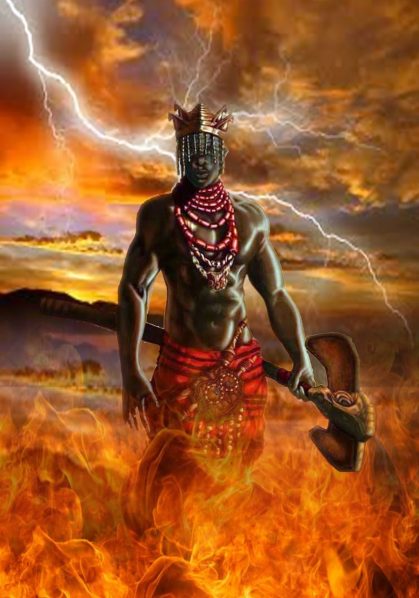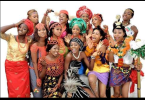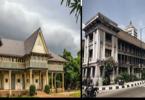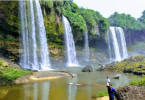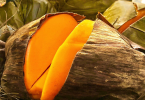In almost every country on Earth, there are legends and mythologies surrounding powerful deities of the past. Nigeria is no exception. In this article, we will be looking at 5 most powerful Nigerian Deities ever known.
Years before Christianity and Islam arrived in Nigeria, these gods and goddesses were revered and worshipped in different ways. There are many tribes in Nigeria; and they all had their different gods. Ancient stories of the exploits of these powerful deities often sent fear into the hearts of listeners.
The deities mentioned here are taken from the dominant tribes in Nigeria. Other tribes may likely have tales of gods whose powers even surpass those mentioned in this list. But based on their popularity, the names listed below are not new to any true Nigerian who is a follower of history and culture. Igbo and Yoruba tribes totally dominate this list.
Amadioha
If you are a Nigerian, irrespective of your tribe, you cannot deny the popularity of this name. Kudos to Nollywood actors and actresses who have been responsible for the fame of this god. They have mentioned the name ‘Amadioha’ so frequently in many culture-oriented movies produced till date, that it no longer sounds strange. Amadioha is one of the most popular gods of the ancient Igbo ethnic group in Nigeria.
Amadioha is the god (‘arusi‘) of thunder and lightning in Igbo mythology. He is first and foremost known as a god of justice. Amadioha speaks through thunder, and he strikes with lightning. In some parts of Igbo land, he is referred to as Amadiora, Kamalu (which is short for ‘Kalu Akanu’), Kamanu, or Ofufe. He is revered in the same way a god is – lovingly and fearfully. Metaphysically, Amadioha represents the collective will of the people. He is also considered the creator God and the god of love, peace and unity. His name is used in swearing oaths in Igbo land; and it carries the death penalty when broken.
He never manifested as a human. Unlike other thunder and lightning deities, Amadioha does not carry any object of power (like Thor carries his hammer; or like Shango carries his axe). His symbol is a white ram. From witness reports, Amadioha at times appeared to people in the form of a large white ram.
Also Read – 10 Popular Nigerian Superstitions You Should Know
Ogun
Ogun is identified in Yoruba mythology as the ancient god of iron, war and hunting. He was the first ‘Orisha‘ (supernatural being) to descend to the Earth. Ogun first descended to the Earth as a hunter, and was thus nicknamed ‘Tobe Ode’. He was also called ‘Osin Imole‘ (chief among the gods). Ogun was said to have led the way, as he cleared the path for the other deities on their journey from the heavens. In Yoruba land and all over the country, the name ‘Ogun’ is is definitely well-known.
Ogun is the Yoruba god of war and iron; he was also a warrior. He was reputed to be the first king of Ife (the ancestral land of origin where creation was birthed, according to Yoruba cosmology). He is usually worshipped by warriors, hunters, blacksmiths, technologists and drivers who believe in the old gods. His symbols are metal, dog and palm fronds.
Sango
Sango is one of the most worshipped gods in Yoruba land. As Amadioha is to Igbo culture and Thor is to Norse mythology, so is Sango the Yoruba god of thunder.
Sango is one of the ancestral fathers and ‘Orisha‘ of the Yoruba, Caribbean and certain Latin American people. He is the highly revered god of Thunder, Lightning, and Electricity, who was also the third Alaafin (ruler) of ancient Oyo kingdom. Sango was a powerful ruler who brought prosperity to his land. He gained his powers from a ‘babalawo‘ (herbalist/native diviner) when he sought more power to destroy his enemies. Sango gained the powers to control lightning. He was subsequently possessed by the spirit of lightning’ marking his ascendance into Orisha level. He was also said to breathe fire and apparently never died.
His symbol is the double-headed axe, which represents swift and balanced justice. He is the owner of the Bata (double-headed drums), as well as the arts of music, dance and entertainment in the Yoruba Culture.
Ogbunabali
This might be the most frightening god on this list. Ogbunabali literally translates to ‘The one who kills at night’. He is the god of death in Igbo tradition. He is a god that strikes terror in the hearts of bad people, because he is known to dish out very violent deaths to the wicked.
Esu
Esu is a key Orisha of great importance in Yoruba land. There is no shrine you will get to in Yoruba land, where you will not see the image or a representation of Esu. In fact, well-established towns also have their ESU at a spot – often at the entrance of the town. Esu in Yoruba tradition is revered as a gatekeeper and chief security officer; and sometimes viewed as the executioner.


